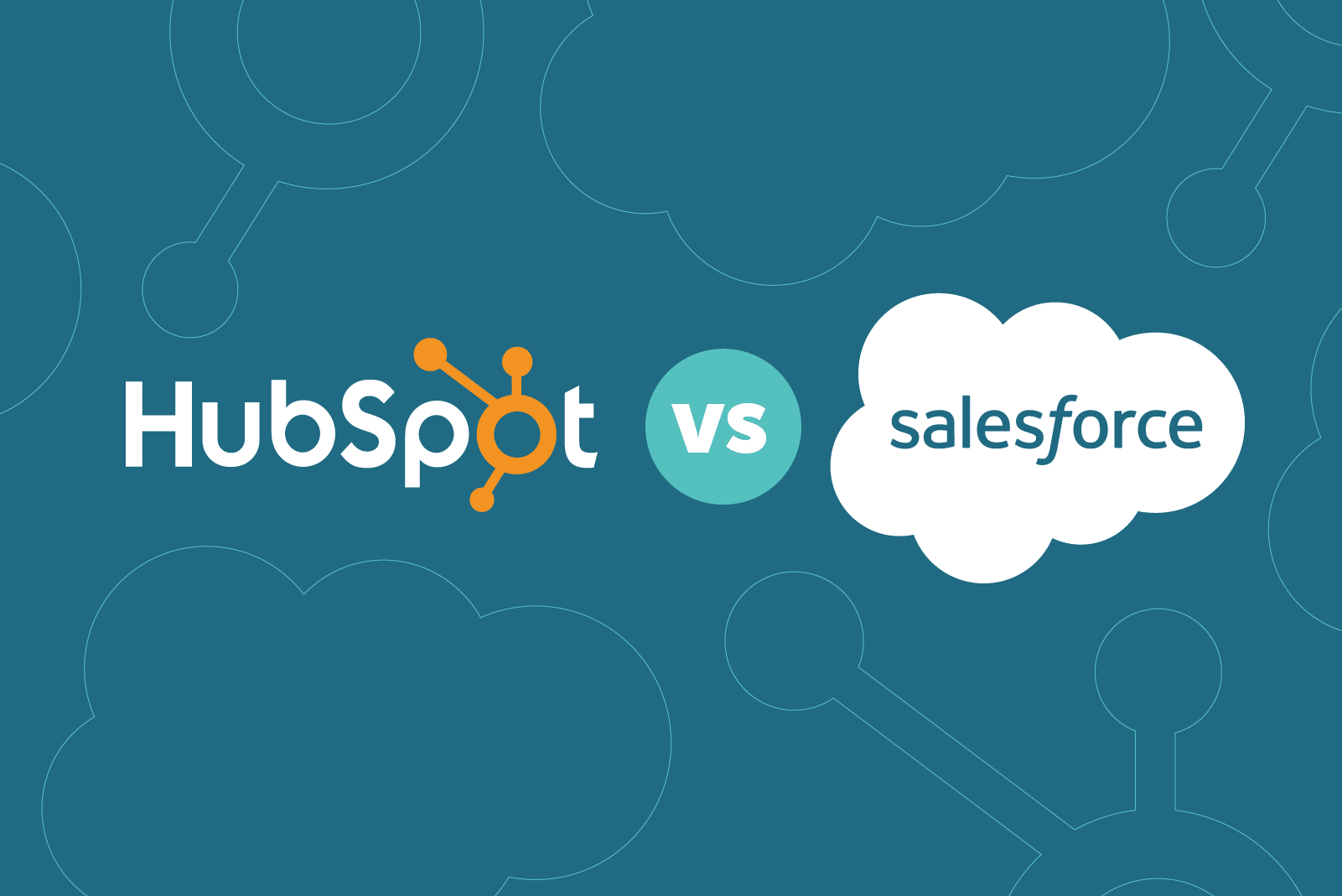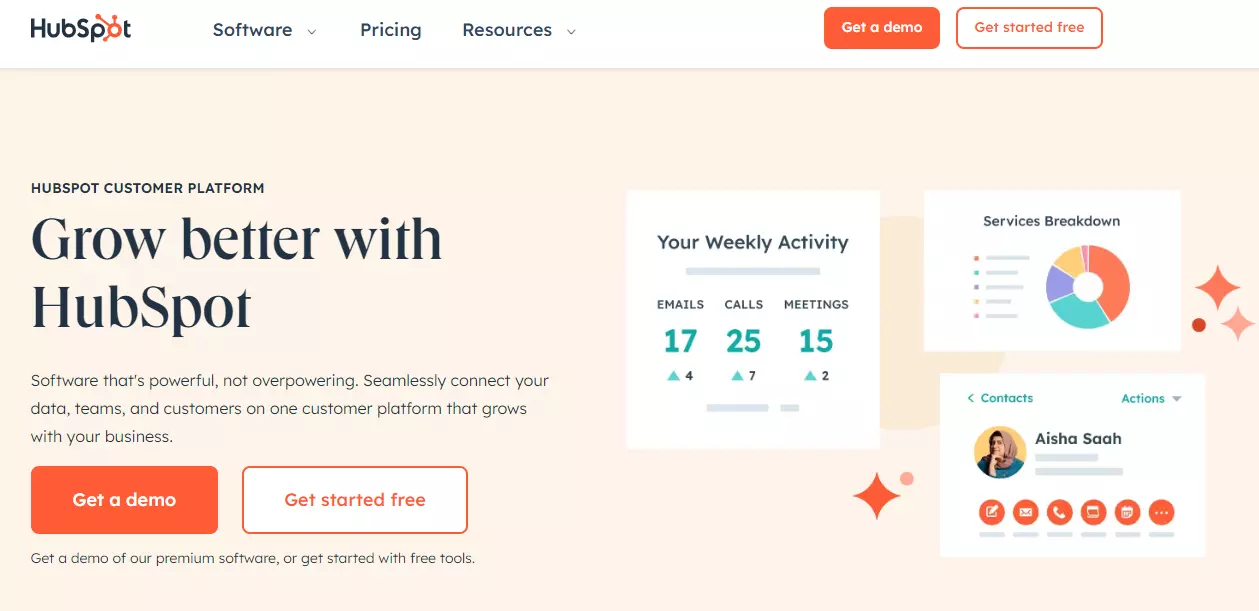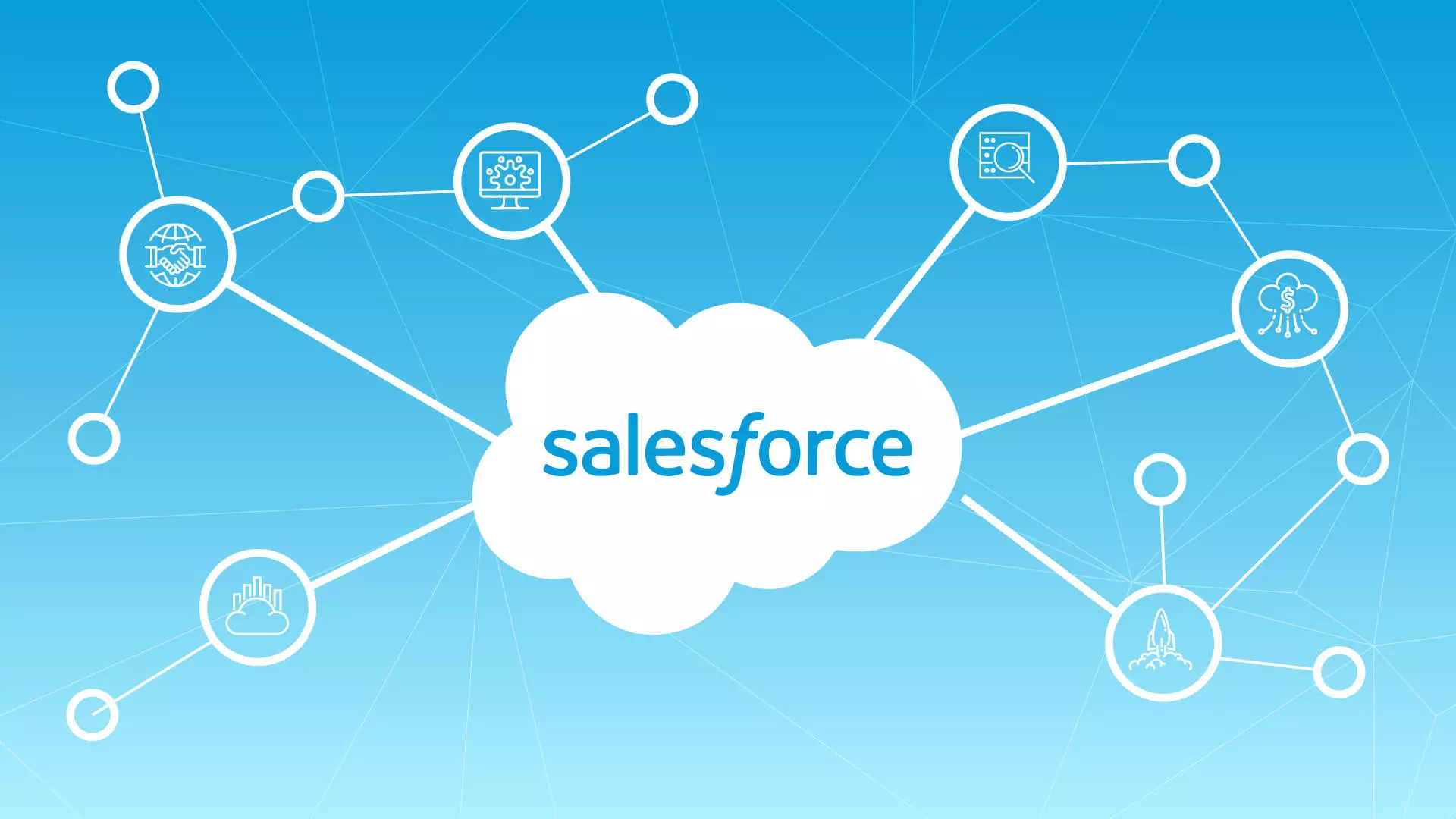
HubSpot and Salesforce are leading choices in the world of customer relationship management (CRM) software, but determining which one suits your needs best can be daunting.
Selecting the optimal CRM platform for your business is pivotal, considering the array of features, pricing models, and implementation requirements involved.
To aid in your decision-making process, compare the key features, pricing options, and pros and cons of HubSpot and Salesforce to identify which CRM tool aligns most effectively with your business objectives.
What is HubSpot?

HubSpot is a cloud-based CRM platform designed to empower marketing and sales endeavors for businesses across all scales.
With HubSpot, your teams gain the ability to refine inbound marketing strategies, thus fostering the generation of more reliable and effective leads, thereby facilitating smoother marketing and sales operations.
Centralizing all digital marketing activities within a single, cloud-hosted platform, HubSpot streamlines the management of website hosting, blogging, social media, email marketing, and more.
Moreover, HubSpot encompasses operational tools and offers HubSpot CMS, a comprehensive content management system, facilitating seamless collaboration among sales, marketing, and operations teams.
HubSpot Pros
1. User-friendly platform.
2. Seven-day free trial available.
3. Extensive blog resources to educate customers.
4. All-in-one CRM tool offering comprehensive solutions.
5. Core software is available for free.
6. Real-time notification of lead behaviors.
7. Personalized email sequences catering to both leads and existing customers.
8. Highly customizable features.
9. Vast library of templates.
HubSpot Cons
1. Requires a 12-month contract commitment.
2. Can incur significant costs at scale.
3. Limited to one email per contact.
4. Imposes graded premium charges beyond certain thresholds of leads.
5. Customer support services are available as an add-on.
What is Salesforce?

Salesforce is one of the most prevalent CRM tools in the market, holding a significant share of the CRM software market. Its primary objective is to enhance business relationships, thereby fostering business growth.
Through Salesforce, companies can cultivate relationships with various stakeholders, including buyers, suppliers, service providers, users, and other entities engaged in business activities with the company.
Sales and marketing teams can monitor all interactions between the company and its customers, encompassing phone calls, emails, SMS, chats, and tickets. With Salesforce, teams gain enhanced capabilities to standardize the sales process, thereby expediting deal closures.
Salesforce Pros
1. Flexibility to add and remove features as needed.
2. Widespread understanding of the platform among sales representatives.
3. Highly customizable dashboards.
4. Built-in social media functionality.
5. User-friendly interface for seamless navigation.
6. Salesforce Database facilitates organization and digitization of company sales records.
7. Capability to integrate with any data source.
8. Compliance with security standards and controls.
9. Highly scalable to accommodate business growth.
Salesforce Cons
1. Expensive pricing structure.
2. Additional add-ons come at an extra cost.
3. Configuration process can be complex.
4. Steep learning curve for users.
5. Generating reports may pose challenges.
HubSpot Vs. Salesforce: A Detailed Comparison

To make your decision-making process easier, let’s compare HubSpot and Salesforce across several critical areas.
Setup and Implementation
HubSpot prides itself on its user-friendly setup and implementation process. Businesses can swiftly begin using the software right after sign-up, thanks to its straightforward interface and comprehensive guidance.
Setting up marketing campaigns, automating tasks, and training staff on HubSpot's suite of tools are made relatively easy with ample support.
In contrast, Salesforce setup is more intricate due to its advanced features and customizable nature. This process often necessitates assistance from a Salesforce consultant or a proficient in-house team. However, this complexity grants extensive control and customization capabilities to Salesforce users.
For organizations seeking quick and hassle-free setups, HubSpot emerges as the better choice. Conversely, if a highly customized CRM system is essential, and resources for implementation are available, Salesforce would be the preferred option.
Core CRM Features
HubSpot offers a broad range of CRM features designed for user-friendliness. These include contact and lead management, email tracking, scheduling, live chat, and a universal inbox consolidating all communications.
The availability of a free version of its CRM is particularly attractive for small businesses or startups on a budget.
On the other hand, Salesforce provides a comprehensive suite of CRM features tailored to support large-scale operations.
These encompass lead management, marketing automation, sales data, partner management, and more. However, accessing certain advanced features may necessitate purchasing higher-level plans or add-ons.
While both platforms offer robust CRM features, the choice should align with specific business needs. HubSpot prioritizes simplicity and ease of use, ideal for smaller businesses, while Salesforce caters to larger organizations with more complex requirements.
Sales Automation Capabilities
HubSpot and Salesforce both offer sales automation capabilities but with differing approaches. HubSpot's intuitive and user-friendly tools suit businesses seeking simplicity.
In contrast, Salesforce's advanced AI-driven features offer a powerful tool for enterprises with larger and more intricate sales processes.
Customization Options
HubSpot provides basic customization options allowing businesses to tailor the software to their needs.
Salesforce excels in customization, allowing extensive customization of fields, layouts, and workflows.
For businesses requiring extensive customization and integrations, Salesforce stands out. However, for simplicity and seamless integration with everyday business tools, HubSpot may be preferable.
Customer Support and Resources
Both HubSpot and Salesforce offer responsive customer support available 24/7 via phone, email, and chat. Additionally, they provide comprehensive self-help resources, including tutorials, guides, and certification courses.
Salesforce's self-help portal, active community, and detailed knowledge base offer extensive resources to maximize platform potential.
Ultimately, both platforms prioritize customer success, offering multiple support channels and abundant resources to assist users in optimizing their CRM experience.
Who Is HubSpot For?
HubSpot is tailored for businesses prioritizing sales and marketing enhancement. With its array of features, including an integrated email marketing suite for optimized and personalized campaigns, it caters to marketers seeking precision through its dynamic active list creation tool, facilitating targeted campaign outreach.
Sales teams benefit from HubSpot's sales forecasting and lead quality metrics, empowering them with valuable insights. Moreover, the platform's robust reporting and analytics tools offer indispensable data for sales and marketing managers, representatives, and C-suite executives, enabling informed decision-making.
Who Is Salesforce For?
Salesforce caters to SMBs seeking a highly customizable CRM solution to elevate overall business efficiency while enhancing sales, marketing, and customer service endeavors.
By consolidating, managing, and interpreting data from marketing, sales, and customer service departments into a unified source, Salesforce empowers businesses to derive insights crucial for creating tailored workflows and automation. These enhancements result in improved responsiveness, effectiveness, and profitability for the organization.
Conclusion on HubSpot vs Salesforce
HubSpot and Salesforce are both leading CRM solutions in the market, each with its distinct strengths and characteristics.
HubSpot provides users with access to a suite of essential tools seamlessly integrated into a modern user interface, making it particularly suitable for start-ups and growing businesses.
While Salesforce users typically pay more for a wider range of integrations and a powerful CRM system. However, Salesforce may be more challenging to customize and navigate due to its complexity.
For businesses primarily focused on supporting sales teams, Salesforce offers a robust solution. On the other hand, if you're seeking a comprehensive CRM solution that caters to various aspects of your business, HubSpot may be the better choice for you.

